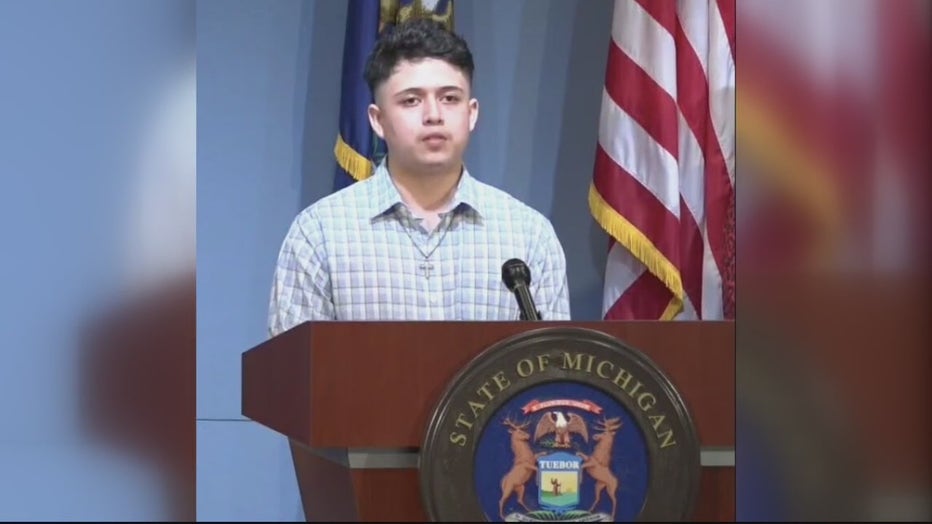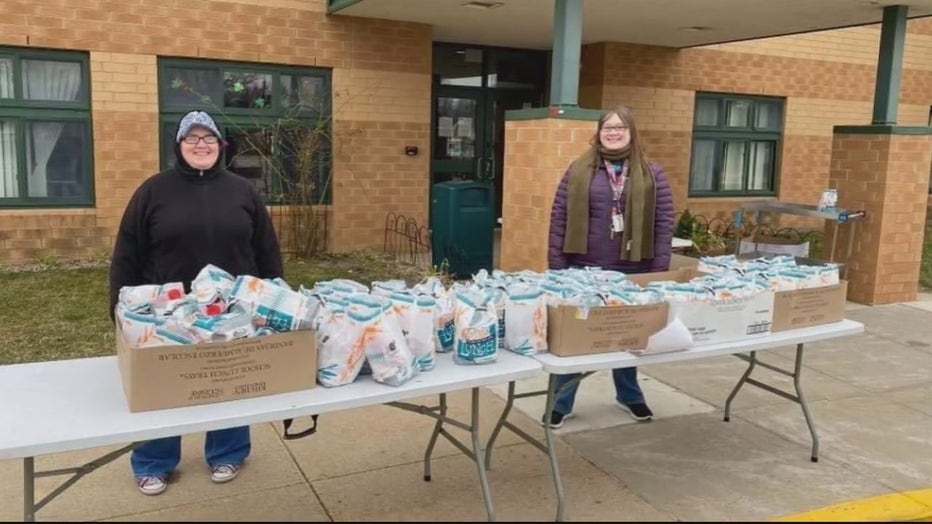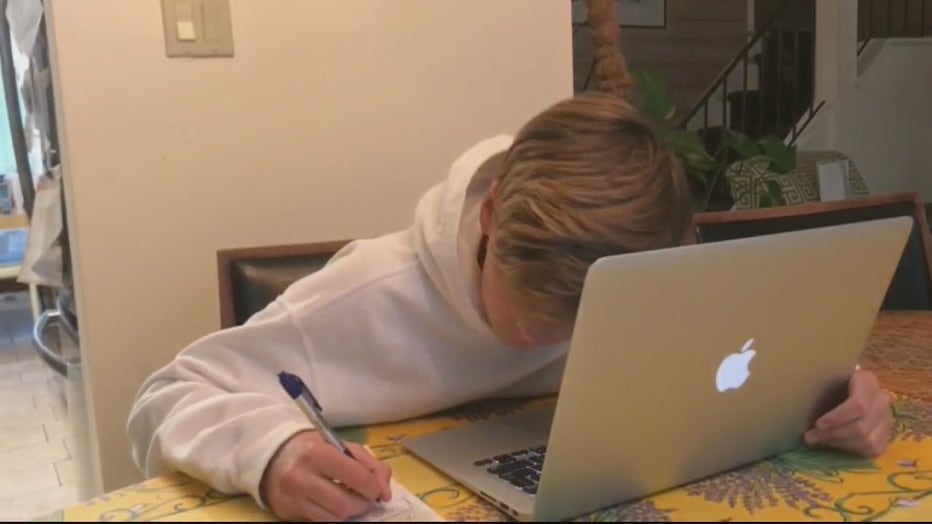Students, educators looking forward after COVID-19 drastically changed education
How the COVID-19 pandemic impacted schools
The COVID-19 pandemic changed the way students learn and the way educators teach.
DETROIT (FOX 2) - A year ago, the way students learn changed drastically as schools shuttered and classes moved online.
"It's straight out of a movie. I remember reading books as kids and them talking about viruses and pandemics and a few weeks later here we are," Dominic Gonzales said.
Gonzales is a 12th-grade student at Academy of the Americas in Detroit. He is the only student on Gov. Gretchen Whitmer’s COVID-19 Return to Learn Advisory Board.

Dominic Gonzalesis the only student on Gov. Gretchen Whitmer’s COVID-19 Return to Learn Advisory Board.
The board was created in May 2020 with the goal of creating a roadmap to get students back to the classroom as teaching and learning methods adapted to the pandemic. That board has accounted for around $250 million of Whitmer’s budget, exemplifying how important getting students in school has been.
"It was an awakening. Over a couple weeks time we quickly realized in May and April that our model for teaching and learning was the best we could do at the time but it wasn't sustainable for this shift," Kevin Polston said.
Polston is the superintendent of Godfrey Lee Public Schools and the chair of the committee that reports regularly to Whitmer and the COVID Task Force on Education. He remembers the day everything about education changed.
"Schools closed on March 16. The NBA stopped all games because they had a confirmed case and they had confirmed spread that caught everyone's attention like, whoa this is a significant issue," he said.
RELATED: A look back at key moments early in the pandemic
The first priority was making sure that students were fed while they were at home. Makeshift food distribution sites were created.

A big goal earlier into school closures was getting food to children learning at home.
Next, students were provided technology they would need to take classes at home, as districts worked to bridge a digital divide.
The Detroit Children's Fund has spent about $1 million on technology and other sources of support for schools around Detroit. The nonprofit’s work helped make virtual learning work.
That digital divide isn’t the only obstacle students faced.
"Many schools right now are focused on opening in some capacity in March and then they will have to work through what some experts say could be up to a year worth of math and reading learning loss," said Jack Elsey, with the Detroit Children’s Fund. "So the challenges are not over just because we put computers in kids’ hands. It doesn't mean learning has happened in the way it should have this year."
In addition to the impact on their education, studies have shown that 30% of teens feel depressed and disconnected from friends as they missed milestones.
"I was looking forward to senior homecoming because I was never one to go to dances over the years. I went to a few at other schools but they were never at my school," Gonzales said.
While students struggled with changes, teachers worked to shift their teaching methods.

Schools are working to get students back in the classroom.
We were trying to make sure we were giving good instruction," said Suki Johal, social studies and debate teacher at University Prep High School. "At the same time, it was a mental health crisis going on, us included, so we just did our best to chug along and we did. We kept up with things the best we could."
Teacher retirements are the highest they have been in decades as some educators return to the classroom and others grapple with what to do.
"Everyone has different reasons for going back and I totally understand the reasons for going back, but for me right now staying home is the better option," Johal said.
Now, the focus is getting back to some degree of normalcy.
"Education is the great equalizer in our country," Polston said. "Now it’s about recovery and having a vision as to how we come out of this and make sure the kids get what they deserve."

